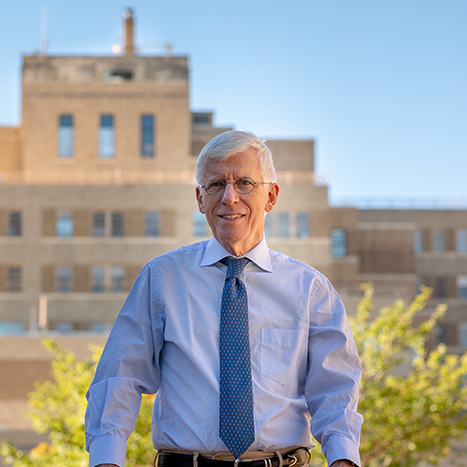From smoking decrees to COVID-19: Epidemiology has changed the world
Findings provide understanding of what makes health better or worse and point to ways to improve quality of life
Aug 9, 2021
Epidemiology, the study of disease in populations, is my scientific discipline. Epidemiology has had an enduring centrality in providing the evidence for advancing the health of the public, extending lifespan and improving the quality of our lives. One extraordinary success, now seriously eroded by the COVID-19 pandemic, has been substantial gains in lifespan worldwide. Since 1900, life expectancy in the United States has increased by about 30 years. We all want to live longer and better, a universal goal advanced by epidemiology.
The findings from epidemiological science intrinsically matter, as they provide understanding of what makes health better or worse and point to ways to improve health. One landmark example is the causal linkage of smoking to lung cancer and other lethal diseases. The findings on smoking and disease, including the dangers of secondhand smoke for non-smokers, have changed the world. Deaths from smoking-caused diseases have been falling for several decades in the United States because of epidemiologically-grounded tobacco control.
Another widespread consequence of the science on smoking – the move to a smoke-free world. We are at the 50th anniversary of instituting separate smoking and non-smoking sections in airplanes and heading for 30 years of smoke-free flights. Freedom from inhaling secondhand smoke in the air was a consequence of epidemiological studies showing that secondhand smoke caused lung cancer in non-smokers. Science on smoking mattered.
More Success: Vaccination for COVID-19
Science on infectious diseases has always mattered and now matters every day. One infectious disease, smallpox, has been eradicated and many dreaded diseases controlled – polio, yellow fever and measles, for example. Some cancers can be eliminated with vaccinations – liver cancer with hepatitis B vaccination, and cervical cancer with human papilloma virus (HPV) vaccination. Epidemiological research pointed to the causation of cancer by the two viruses, laying the foundation for cancer-preventing vaccines.With the COVID-19 pandemic underway, epidemiology, epidemiologists and the findings of epidemiological research are ubiquitous in the daily news cycle and affecting our lives. We are routinely making decisions about epidemic control drawing on epidemiological insights into the airborne transmission and transmissibility of SARS-CoV-2, changes in its genetic sequence and how populations mix. I credit vaccine development and vaccination for COVID-19 as a further success of public health sciences, the most recent example of a series of world-changing vaccines.
Troubling trends
There is much more to come from public health sciences. There will always be targets for research, whether the ever-changing leading causes of death or the next emerging infectious disease.In closing, consider a negation of my title: Why Science Does Not Matter? For centuries, some advances made by scientists, and even the scientists themselves, have been attacked for disruptive discoveries. Over recent decades, the negation of science’s role in society has been amplified by 21st century media channels and tied to nationalistic politics in a new and troubling way.
This negation has had unfortunate consequences for the course of the COVID-19 pandemic; contrast the pandemic’s course in the United States with a counterfactual where decision-making was solidly grounded in public health science from the start. In this hypothetical, the outcome would have been much better with far fewer cases, hospitalizations and deaths.
Science matters. Let’s keep doing it, extolling its benefits and countering those who diminish it.
Categories:
Administration
Colorado School of Public Health
|
Tags:
ColoradoSPH Dean's Notes


